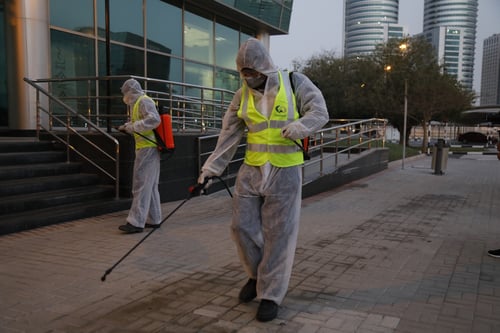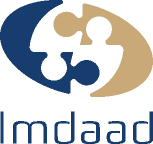 Almost every discussion out there on managing workforce during the pandemic seems to tackle exclusively the case of white-collar employees, dovetailing into key topics and challenges such as remote work and productivity, mental health, and effects on company culture. We seldom see any of these discussions address the blue-collar workforce who, for the most part, cannot work remotely because of the nature of their work that requires them to be on-site. These men in blue too suffer from repercussions and require an equal amount of attention if not more.
Almost every discussion out there on managing workforce during the pandemic seems to tackle exclusively the case of white-collar employees, dovetailing into key topics and challenges such as remote work and productivity, mental health, and effects on company culture. We seldom see any of these discussions address the blue-collar workforce who, for the most part, cannot work remotely because of the nature of their work that requires them to be on-site. These men in blue too suffer from repercussions and require an equal amount of attention if not more.
For Imdaad Group, blue collars make up the majority of the workforce, and it’s their output that keeps the lights on effectively at the end of the day. Since the outbreak of COVID-19, Imdaad has been very proactive in managing its workforce to safeguard their health and wellbeing and ensure minimal disruption to operations.
Our workers and frontliners have been nothing short of incredible with their loyalty, dedication, and hard work. The credit goes mainly to our Human Capital department for the effective strategies they have proactively put in place and their compassionate approach to dealing with people.
In this article we share our experience and some of the lessons we have learned throughout this year.
How is blue-collar workforce different?
By definition, a blue-collar worker does manual labour, usually at an industrial facility. This includes skilled manufacturing jobs, technical services, cleaning, security, as well as general unskilled labour. The common misconception is that a blue-collar is by default an uneducated person, but this cannot be farther from the truth. In fact, most blue-collar workers nowadays have some sort of vocational education and many of them are experienced engineers. This fact continues to hold true as our world becomes more advanced and gets driven by modern technology and robotics.
Despite their differences, blue-collar workers in the UAE tend to share certain demographics and economic backgrounds. Most managers agree that the men in blue are generally simple people with simple needs. They are motivated by financial reward, they appreciate recognition, and they thrive when they are supported and engaged. They are usually social, and they have varying interests and hobbies. Most of them have big families back in their home country and they are the main breadwinners.
How did our workforce react to COVID-19?
With the COVID-19 outbreak, the lockdowns, and the tough economic situation that ensued, our workforce was understandably experiencing fear, uncertainty, and stress. As they came into contact with a lot of people around the city who were getting laid off or given unpaid leaves of absence, they too were worried about losing their jobs. There was also anxiety and fear from the Coronavirus as a deadly threat driven by a lack of awareness and news about some positive cases among the workforce.
How was Imdaad’s response?
Health and Safety
The health, safety, and wellbeing of our workforce was our primary concern at Imdaad. We implemented a wide range of safety measures at accommodations and on sites.
We fitted the camps with disinfection gates, thermal cameras, sanitizers, social distancing measures, and dedicated rooms for isolation of suspected cases and others for quarantine of confirmed cases. Teams from EHSQ and Human Capital departments conducted regular site visits to ensure that safety standards are met, be it Imdaad’s own standards or the ones mandated by the government. Additionally, we kept doing random tests every 2-3 weeks for employees at work and at their accommodations. The camps were visited frequently by delegates from Dubai Health Authority and Dubai Municipality who were overly impressed and gave in excellent feedback.
Awareness
The second priority for Imdaad was ensuring that the workforce has a high level of awareness and alertness during the pandemic. We conducted on-going awareness campaigns and sent awareness messages on a daily basis. Informational roll-ups for awareness on protective measures were carried out in four languages (English, Hindi, Urdu, and Telugu) at all camps and offices. In addition, the EHSQ conducted trainings on prevention and hygiene control to supervisors and made themselves available on demand for any situations and concerns.
Job Security
There is nothing more important to the workers than securing their job and the livelihood of their families. Thankfully, at Imdaad Group, no one was terminated because of COVID-19 or the economic difficulties it created. In fact, Imdaad continued to hire and conduct open days for job seekers.
We did however have to reshuffle workers between business units and between different cities and different risk-level areas to respond dynamically to the situation and the changes in demand. We also facilitated work-from-home arrangement whenever possible. The Human capital team took all the necessary steps to ensure such transitions were smooth and suitable for the capabilities and skill levels of each individual.
Engagement
To maintain a positive attitude and reassure the workforce, Imdaad did not stop the momentum of employee engagement and learning and development activities. With the help of technology, we were able to continue carrying out training courses and employee engagement initiatives online. As the lockdowns eased, we resumed physical employee engagement events and activities while maintaining all the preventive measures in place.
We made free Wi-Fi available for all employees at their accommodation during the lockdown period and beyond, for a total of four months. This helped reduce the psychological effects of the pandemic and lift up the morale and mental health of the workforce.
We also made sure to maintain open two-way communication across various touchpoints with every individual. Our team listened to problems and concerns and connected with the workforce on a human level.

